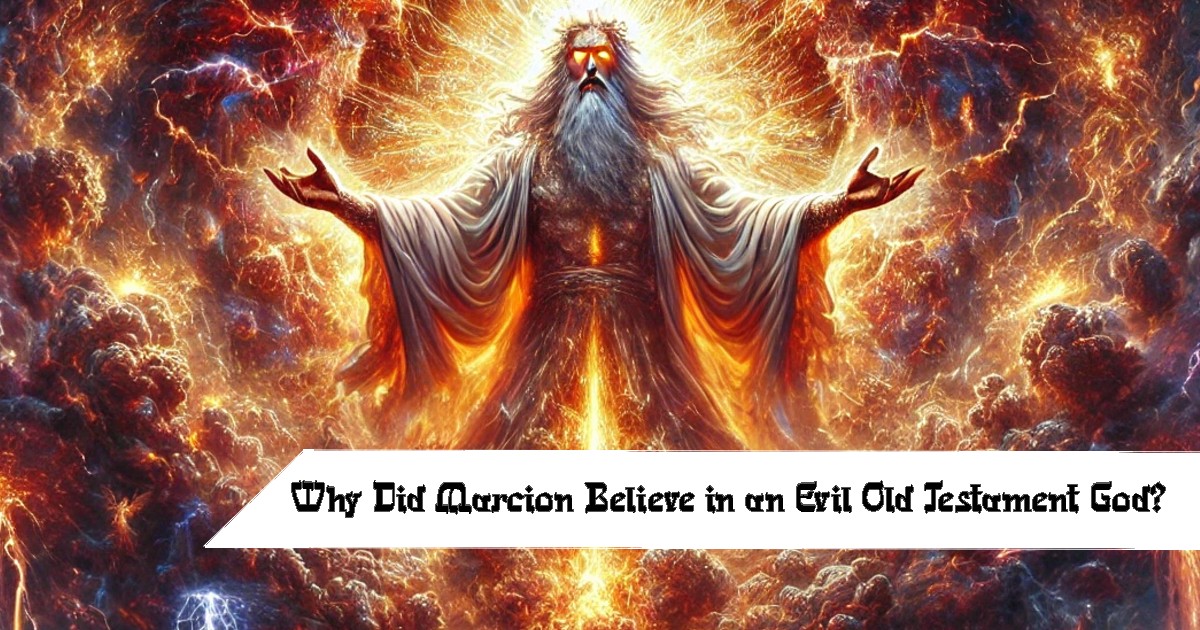In evangelical theology, God is viewed as unchanging, perfectly good, and consistent throughout both the Old and New Testaments. The belief is that the God of the Hebrew Scriptures is the same loving, merciful Father revealed through Jesus Christ in the New Testament.
However, when we explore early Christian history and ancient manuscripts, we find that not everyone in the early church agreed with this perspective—including a controversial figure named Marcion.
Evidence That Challenges the Traditional View:
- Marcion’s Radical Theology: Marcion, a 2nd-century Christian thinker, believed that the God of the Old Testament was a fundamentally different being from the loving Father described by Jesus. He viewed the Old Testament God as a harsh, legalistic “demiurge” obsessed with law, justice, and punishment.
- Scriptural Contradictions: Marcion highlighted stark differences between the violent, wrathful depictions of God in the Old Testament and the message of grace and forgiveness in the New Testament. For example, the God who commands genocides in Joshua contrasts sharply with Jesus’ teachings of loving one’s enemies.
- Marcion’s Edited Bible: He created one of the earliest known Christian canons, excluding the Old Testament entirely and heavily editing the Gospel of Luke and Paul’s letters to remove references to the Jewish scriptures. This suggests early disputes about what counted as “authentic” Christian texts.
- Early Church’s Reaction: Marcion’s views were so provocative that they forced the early Church to define orthodoxy more clearly. His rejection of the Old Testament spurred Church leaders to solidify the biblical canon, blending Hebrew scriptures with Christian writings.
- Dualism Influence: Marcion was influenced by dualistic philosophies prevalent in the ancient world, which saw the material world as corrupt and created by an inferior god, separate from the higher, spiritual God of love and light.
What Do These Evidences Reveal?
Marcion’s beliefs weren’t random heresy; they were responses to real tensions within the biblical texts. The contrasting depictions of God in the scriptures, combined with philosophical influences of the time, led him to conclude that there must be two gods: one evil, responsible for the flawed material world, and one good, revealed through Jesus.
Insights from Ancient Manuscripts:
- Marcion’s Canon: Although Marcion’s original texts are lost, early Church Fathers like Tertullian and Epiphanius preserved critiques and descriptions of his canon, revealing how dramatically he altered scripture to fit his theology.
- The Antitheses: Marcion’s key work, Antitheses, presented side-by-side comparisons of contradictions between the Old and New Testament Gods, showcasing his arguments for dualism.
- Church Fathers’ Writings: Tertullian’s Adversus Marcionem provides detailed counter-arguments to Marcion’s theology, ironically preserving much of what we know about Marcion’s views.
Summarizing the Findings:
While evangelical theology upholds a consistent and unified image of God throughout scripture, Marcion’s radical conclusions expose the deep theological debates of early Christianity. His dualistic beliefs were not born out of rebellion but from grappling with the contradictions and complexities within the biblical texts themselves.
Sources:
Academic:
- Ehrman, Bart D. Lost Christianities: The Battles for Scripture and the Faiths We Never Knew.
- Harnack, Adolf von. Marcion: The Gospel of the Alien God.
- Pagels, Elaine. The Gnostic Gospels.
Ancient Manuscripts:
- Tertullian’s Adversus Marcionem
- Epiphanius’ Panarion
- Fragments and references to Marcion’s Antitheses

